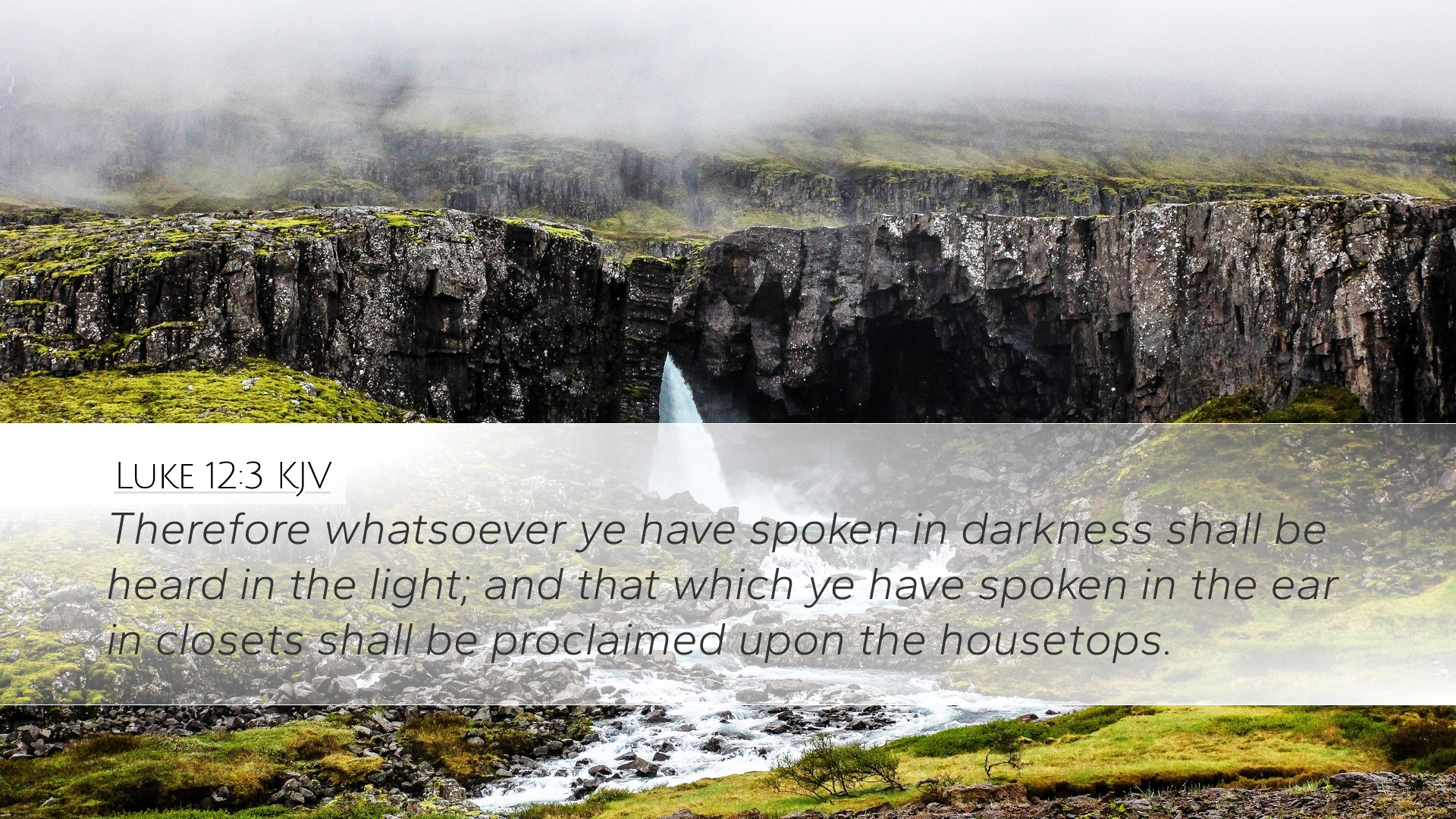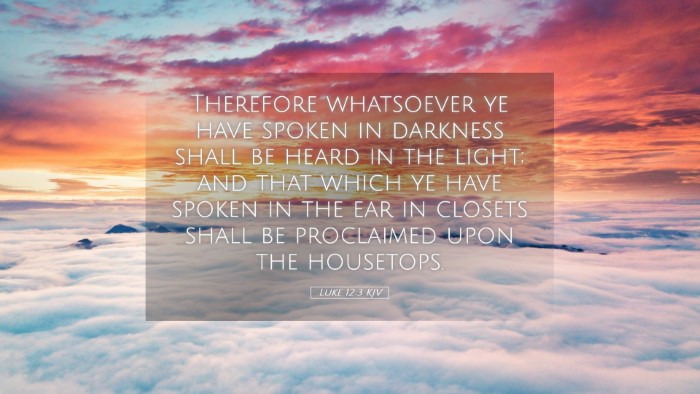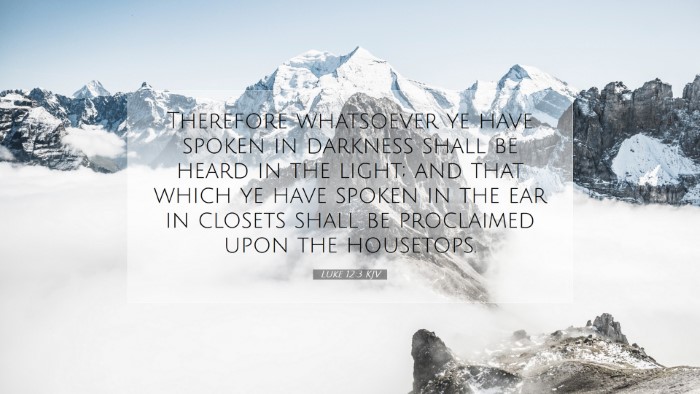Commentary on Luke 12:3
Verse Text: "Therefore whatsoever ye have spoken in darkness shall be heard in the light; and that which ye have spoken in the ear in closets shall be proclaimed upon the housetops."
Introduction
This verse serves as a sobering reminder of the omniscience of God and the ultimate revelation of truth. It highlights the serious implications of our words and intentions, and is especially poignant within the context of discipleship and accountability in the Christian life.
Exegesis and Literary Context
This scripture is a part of Jesus's teaching to His followers prior to His ascension. In the surrounding verses, He addresses the nature of true discipleship, warning against the hypocrisy of the Pharisees (see Luke 12:1). Here, Jesus stresses that what might seem private will indeed be revealed in public.
Insights from Matthew Henry
Matthew Henry notes that this warning serves to underscore both the power and reach of divine truth. He emphasizes that nothing is hidden from God and that the secrets of men’s hearts will eventually be uncovered. Henry elucidates the idea that the “darkness” symbolizes the sin and deceitful nature of human conduct, while “light” represents truth and the revelation of God's holiness.
Thoughts from Albert Barnes
Albert Barnes presents this verse as a caution against speaking ill, particularly regarding others. He suggests that many may speak their criticisms or grievances in secret, thinking their words will not see the light of day. However, Barnes asserts that God will expose these words, reminding believers of the need for integrity in communication. He encourages a life lived above reproach, knowing that even our private words have consequences.
Reflections from Adam Clarke
Adam Clarke emphasizes the moral responsibility that accompanies speech. He articulates that Jesus links our spoken words to our inner character. Clarke argues that this verse serves as a warning particularly to leaders and teachers, who will be held to a higher standard for the truths they proclaim. He further points out that the notion of being “proclaimed upon the housetops” indicates that truth will eventually prevail and all secret things will be made manifest.
Theological Implications
- God's Omniscience: This verse reinforces the belief that God is aware of all thoughts and intentions, encouraging believers to lead lives characterized by sincerity.
- The Nature of Truth: The proclamation upon the housetops suggests that truth ultimately prevails. It compels believers to practice honesty and transparency.
- Judgment and Accountability: It offers a perspective on divine judgment, implying that there will be a time of reckoning where secrets will be unveiled, urging believers to be mindful of their speech.
Practical Applications
- Communication: Believers are encouraged to speak edifying words and to avoid gossip, slander, or any form of deceit.
- Integrity in Leadership: Those in positions of authority must model transparency and accountability, keeping their public and private lives aligned.
- Encouragement of Accountability: Engage in community practices that promote confession, accountability, and the sharing of truths in love.
Conclusion
Luke 12:3 not only serves as a warning but also as an encouragement to live righteously and transparently before God and man. As we internalize this teaching, may it transform our hearts and words, leading us toward a deeper commitment to truth and accountability in all areas of our lives.


